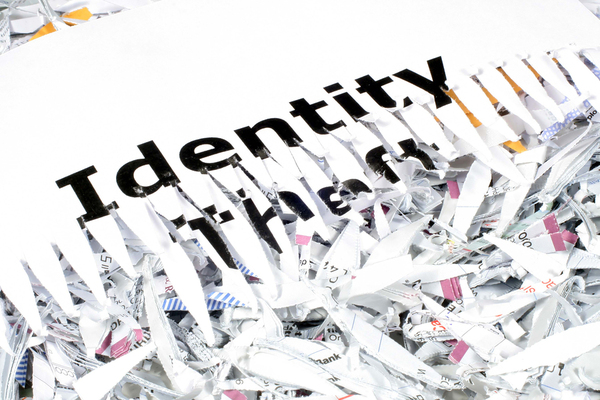In conversations about senior safety, physical and emotional wellness often take center stage. But what about financial wellness? With identity theft a growing problem in the United States and seniors particularly susceptible to it, it's critical for caregivers to understand this rising threat. Read on for a closer look at identity theft, along with four caregiver tips aimed at helping seniors reduce their risk of becoming victims.
What is Identity Theft?
USA.gov defines identity theft as "a crime where a thief steals your personal information, such as your full name or social security number, to commit fraud." Criminals can then use this information for a number of different fraudulent purposes, including illegally getting birth certificates and driver's licenses, obtaining medical services, applying for credit, and even filing taxes.
Unfortunately, seniors are especially vulnerable to fraud, including identity theft. In fact, according to a recent report from investor education and protection nonprofit Investor Protection Trust (IPT), nearly seven million Americans over the age of 65 -- nearly 20 percent! -- have been victims of financial fraud over the past year alone.
And while experts struggle to place an exact toll on the cost to seniors and their families, estimates spike as high as $36 billion annually.
Why Are Seniors So Susceptible to Identity Theft?
Several different factors make seniors ideal targets for ID theft. For starters, there's the fact that older adults are less likely to be carrying debt than their younger counterparts and are therefore more likely to be approved for credit.
They also may not monitor their credit as closely as younger people preparing to make major purchases which require credit, meaning they're less likely to notice when their identity is stolen.
Lastly, seniors are also more frequently in contact with medical professionals, which exposes their personal information and financial documents to more people.
Further compounding the problem? Not only are seniors often isolated and trusting, but they may also suffer from cognitive declines which make them easy marks for financial predators. Additionally, they may be reluctant to disclose when they've been victimized because they're embarrassed, prideful, or fearful of losing their independence.
What Can Caregivers Do?
Senior fraud and identity theft are so prevalent that the Seniors Fraud Prevention Act of 2015 was recently introduced to Congress. Unfortunately, there are many hurdles to pass before that bill becomes law. This doesn't mean older adults are defenseless against the criminals who want to prey on them, however. Caregivers can take several steps to help seniors protect their identities...and their bank accounts, including the following four tips:
1. Maintain open lines of communication.
The more seniors know about identity theft and other common scams, the less likely they'll be to fall victim to them. In addition to the IRS's annual "Dirty Dozen" of scams, StopFraud.gov is also a terrific resources for caregivers and seniors. One rule of thumb worth reminding seniors, the old adage, "If it's too good to be true, it probably is," still holds true in 2017.
2. Keep watch over their finances.
Clever scammers use a variety of methods to prey on seniors, including mail, telemarketing, and email. Because these usually involve providing credit card information or sending money, keeping an eye on senior bank and credit card statements can help caregivers spot potential fraud before it progresses.
3. Fraud-proof their financials.
A scammer can't steal your aging loved one's identity without access to his/her personal information. Make sure all documents containing personal and financial information are securely locked away in a safe deposit box or home safe.
A shredder is a smart investment, as savvy scammers can use anything from a check to a piece of mail to steal someone's identity.
 4. Take advantage of identity theft protection.
4. Take advantage of identity theft protection.
Another old saying that applies to seniors and fraud? "Plan for the best, prepare for the worst." Enter the AARP's Identity Theft Protection program, which offers complete identity theft protection and credit report monitoring for AARP members and their families for a low monthly fee -- a small price to pay for the peace of mind of knowing your aging loved one is safe.
The Elder Justice Now Campaign produced a video, An Age for Justice: Confronting Elder Abuse in America, which tells the personal stories of families and individuals whose lives have been turned upside down by elder abuse. Abuse happens in many ways - financial, emotional, physical, and psychological. Elder Abuse effects an estimated five million Americans every day.
While no one likes to think identity theft or any other form of elder abuse will happen to them, the fact is that it can and does happen -- to people just like your aging loved one. The more caregivers understand the risks and adopt proactive preventative strategies, the better protected their loved ones will be.
If you're looking for a comprehensive resource for family caregivers, check out our online Family Caregiver Guide.mmLearn.org offers a large library of free videos for caregivers of older adults, covering topics pertaining to senior care, such as identity theft and senior safety. Whether you are a healthcare professional or a family caregiver, if you are caring for an older adult we know that you will find mmLearn.org an essential learning and guidance tool for all of your caregiver training needs. For more useful online training for caregivers, access our free database of online caregiver videos today. 
